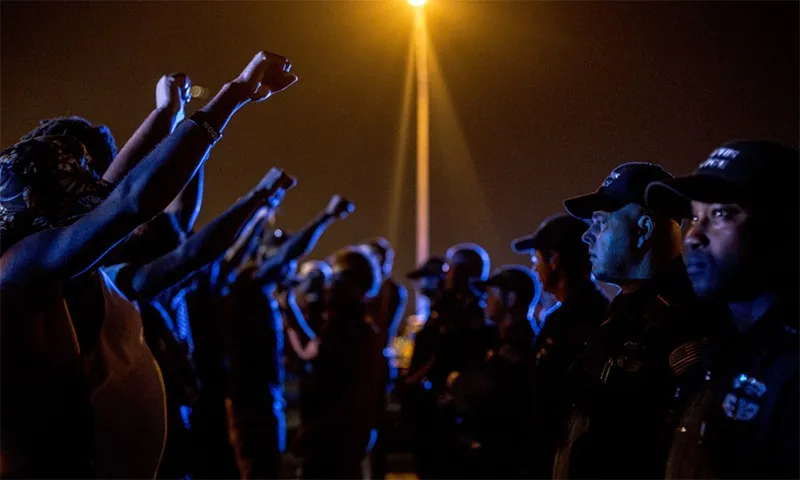“MEMPHIS — July 10 marks the anniversary of the largest spontaneous act of civil disobedience in the city’s modern history.
The spark: The police killings of two black men in less than 24 hours, Alton Sterling on July 5 in Louisiana and Philando Castile on July 6 in Minnesota.
The kindling, though, was the generations-old resentment and rage simmering in a majority-black city where the wealth and prosperity is concentrated in the white minority and many black people live on the economic margins.
On that Sunday afternoon, more than 1,000 people — almost all young and black — marched up the Hernando DeSoto bridge that crosses the Mississippi River into Arkansas, snarling traffic for hours. As the sun set, marking the sky with a pink stripe near the horizon, police sirens drowned out the protesters’ chants.
Their faces inches away from armed officers, protesters spoke their pain to power.
“This was the only opportunity that they would ever have in their life to even talk to a police officer in a way that won’t get them killed,” said organizer Jayanni Webster, one of the last people to leave the bridge.
“People in Memphis never have the opportunity to confront those in power… those who represent a failed state of the economy and the politics of this city that continually oppresses people.”
This loosely organized crowd resurrected the radical spirit of the exemplar of civil disobedience, Dr. Martin Luther King Jr., who was assassinated nearly 50 years ago, on a motel balcony not two miles from the bridge. He came to town on behalf of striking black city sanitation workers.
Knowingly or not, the masses followed the instructions in one of King’s last speeches here: Apply economic pressure to force the city to provide better-paying jobs and end economic apartheid.
So on that Sunday afternoon, they blocked the span that every day funnels more than 37,000 vehicles east and west: The Interstate 40 bridge, with its iconic M-shaped arches.
If only for one night, protesters used their bodies to sever the lifeblood of the city where FedEx is headquartered, the city that bills itself as the nation’s distribution capital: Interstate commerce. Under their feet rumbled the muddy Mississippi, which once transported enslaved ancestors to brutal plantations.
“We waited 400 years to get justice, they’re going to wait — they’re going to wait! — to get across this bridge!” activist Devante Hill told a TV news reporter.
TO READ MORE:”
